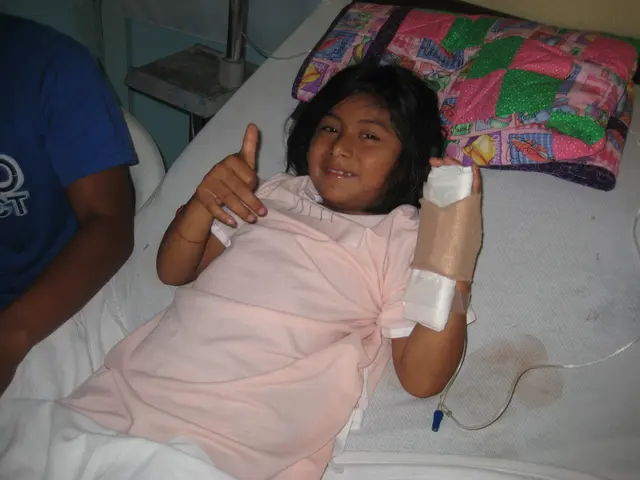Exploration of Human Echolocation: Meaning, Studies, and Further Insights
In a world where blindness is common yet often misunderstood, a fascinating study has shed light on an extraordinary ability: echolocation. Conducted on both blind and sighted individuals who took a 10-week course on echolocation, the research found that both groups significantly improved their skill over time.
Echolocation, a technique that uses sound waves to determine a person's location relative to other objects and navigate the environment, is not exclusive to bats and dolphins. Blind individuals, those with low vision, and even sighted people can learn to echolocate by using sounds like clicks.
Research from 2020 suggests that people who echolocate usually listen for at least three sound components: pitch, loudness, and sharpness. This ability involves perceiving spatial information through auditory cues when vision is limited or absent.
Effective human echolocation training generally includes active sound production, focused listening, spatial interpretation, progressive practice, and feedback and guidance. Learners make sharp sounds (commonly tongue clicks) that generate echoes from nearby objects, develop the skill to detect slight timing, amplitude, and spectral differences in the returning echoes, train the brain to map these auditory echoes into spatial perception, and gradually refine the ability in complex surroundings.
Examples of blind individuals who have mastered human echolocation, such as Daniel Kish, demonstrate the potential of this technique. Kish consistently practices tongue-clicking techniques and learns to interpret echo cues to navigate and perceive his environment.
While machine echolocation systems rely on ultrasonic pulses and AI interpretation of echo patterns, human echolocation emphasizes training auditory perception within the audible range to mimic biological sonar abilities found in bats or dolphins. Practical human training often includes structured workshops and auditory exercises to develop sonar-like skills over time.
Further research is necessary to understand the effects of blindness and age on the brain's ability to increase hearing sensitivity and potentially enable echolocation. A 2019 study found that blindness correlates with increased sensitivity in the brain's auditory cortex when blindness occurs early in someone's life.
As we continue to explore and understand the capabilities of human echolocation, it opens up a world of possibilities for those with vision loss, offering a unique and empowering way to navigate and perceive the environment.
- Scientific studies have found that some therapies and treatments, like echolocation training, can help those with blindness or low vision to improve their navigation skills.
- Mental health is an essential component of health-and-wellness for those learning echolocation, as the process requires focused listening and spatial interpretation.
- Nutrition plays a role in maintaining overall well-being during echolocation training, ensuring that individuals have the energy necessary for active sound production and progressive practice.
- Future research could examine the effectiveness of cannabidiol (CBD) as a potential aid in managing stress and anxiety associated with blindness and echolocation training.




